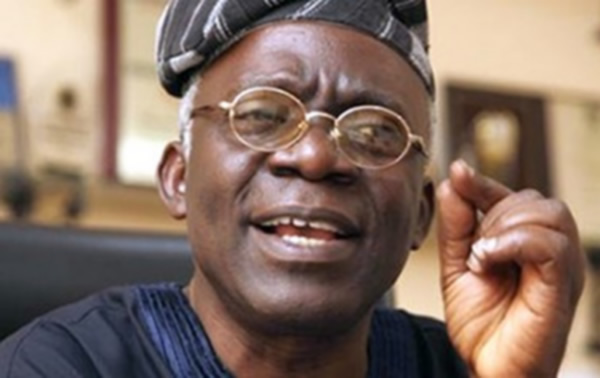Femi Falana’s Critique of Southwest Governance
Senior Advocate of Nigeria, Femi Falana, launched a scathing attack on the governors of the Southwest region, accusing them of egregious financial mismanagement, infrastructural neglect, and a blatant disregard for the welfare of their constituents. Speaking at the 2025 National Conference of Egbe Amofin O’dua in Abeokuta, Ogun State, Falana lamented the sorry state of affairs in the region, highlighting the stark contrast between the current leadership and the legacy of the late Chief Obafemi Awolowo, a Yoruba leader renowned for his commitment to development and good governance. Falana’s central argument revolved around the misplaced priorities of the current administration, characterized by extravagant spending on frivolous projects while critical sectors like education, infrastructure, and disaster relief languish.
Falana specifically criticized Governor Seyi Makinde of Oyo State for earmarking a staggering N63 billion for the renovation of the Government House, a project he deemed unnecessary given that the governor resides in his private home. He argued that such funds could have been more judiciously utilized for crucial developmental projects, such as road construction and improving electricity supply, which would directly benefit the populace. He further extended his criticism to the Lagos State House of Assembly, alleging that they had spent N45 billion on utility vehicles over the past four years and were planning another N20 billion allocation for the same purpose. This, he argued, was a gross misallocation of resources in a state where significant portions of the population live in poverty and lack access to basic necessities.
The renowned human rights lawyer warned that the region risked further decline unless political leaders at both state and local government levels prioritized good governance and public service over self-enrichment. He illustrated his point with the example of the flooding in Ikorodu, Lagos State, where residents were left stranded and without adequate assistance. He contrasted this with the response typically seen in developed countries, where helicopters would be deployed to deliver aid to affected communities. This lack of responsiveness, according to Falana, underscores the apathy of the government towards the plight of its citizens.
Falana’s critique also encompassed the declining state of education in the Southwest. He highlighted the region’s poor record in accessing funds from the Universal Basic Education Commission (UBEC), contributing to the alarmingly high number of out-of-school children. He lamented the proliferation of “miracle centers,” informal exam preparation outlets offering dubious shortcuts to academic success, which have become a refuge for students deprived of quality education in formal schools. This, coupled with the decaying infrastructure and widespread poverty, paints a grim picture of a region failing to invest in its future generations.
The lawyer also raised concerns about the rising influence of street gangs and the privatization of public resources. He described a scenario where land owners are forced to pay these gangs at various stages of construction, highlighting the breakdown of law and order and the erosion of property rights. This, he argued, is symptomatic of a deeper societal malaise, where the rule of law is being undermined by criminal elements. He connected this to the privatization of the region’s commonwealth, suggesting that the resources that should be used for public benefit are being diverted for personal gain.
Falana concluded his address with a call to action, urging legal practitioners to hold political leaders accountable for their actions. He specifically pointed to the N6.9 trillion allocated for constituency projects in the 2025 budget, urging lawyers to investigate the legitimacy and location of these projects and to take legal action against lawmakers who fail to provide satisfactory explanations. He stressed the importance of their role in upholding the rule of law and ensuring that public funds are used judiciously for the benefit of the people.
Echoing Falana’s concerns, other prominent figures at the conference, including former Attorney General of the Federation, Chief Akin Olujinmi (SAN), emphasized the importance of upholding justice, equity, and the rule of law. Olujinmi stressed the need for regular engagement with the populace and responsiveness to their needs, prioritizing youth empowerment and harnessing the region’s resources for the benefit of all. Similarly, President of Egbe Amofin O’dua, Mr. Isiaka Olagunju (SAN), called upon members to protect Yoruba heritage and address the contentious narrative surrounding Lagos as “no man’s land.” Chief Gani Adams, leader of the Oodua Peoples Congress, advocated for restructuring and true federalism as solutions to Nigeria’s pervasive insecurity and economic instability. The conference concluded with the formation of a follow-up committee tasked with presenting key resolutions, particularly those concerning regional security and economic integration, to the relevant authorities for implementation.














